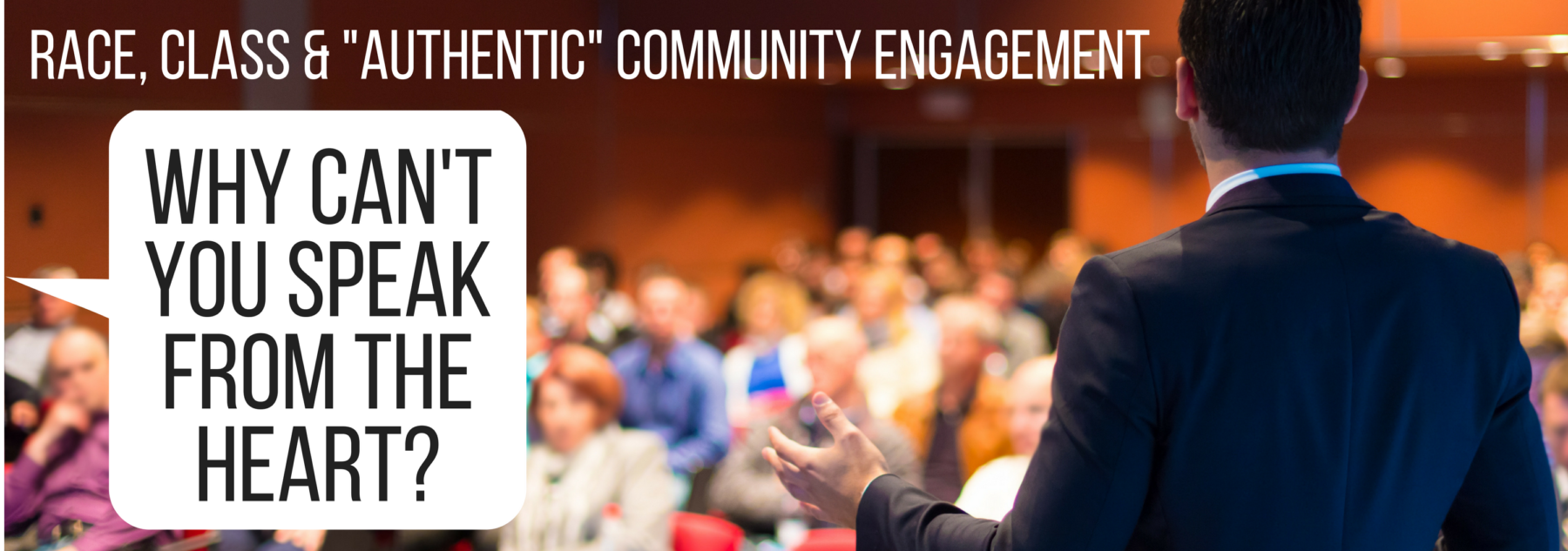College-educated power brokers are often skeptical of well-informed community voice, especially when it comes from families who are low income or people of color. Most recently, I saw this with an Aurora mother whose daughter graduated from Hinkley. She was motivated to join the Resident Leaders Council when her daughter had to enroll in remedial courses despite graduating from Hinkley with high grades. Confused, she used her resources, asked questions, and found answers. She spent hours learning and preparing her testimony. After she delivered her testimony to Rebecca McClellan, her representative on the State Board of Education, the crowd of families receiving interpretation in five different languages applauded.
After the forum, some audience members asked not how they could help change the narrative for students like her daughter but instead asked why she felt the need to use scripted testimony. Why, they wondered, could she not “just speak from the heart?”
I briefly explained that her testimony reflected her experiences, her learning, and that she prepared a script because she was probably nervous about speaking in front of such a large audience. Much like anyone might prepare a script, PowerPoint, or speaking notes before a presentation, this mother had diligently prepared her remarks. The more I thought about this question of “speaking from the heart,” the more I have started to recognize its insidious implications. This mother’s testimony was powerful, authentic, and critical of the status quo. I suspect, that for those very reasons, some audience members perceived it as inauthentic.
This blog is what I wish I had said.
Authentic Community Voice Should Not Mean Simplicity
When we construct authenticity as a lack of technical or policy knowledge, we limit the ways that communities interact with the systems that impact their lives. It is incredible to see people spontaneously speak out against something that impacts their lives, but that is not the only way to engage. We have to expand our definition of authenticity, especially when we are talking about low income communities and communities of color. Otherwise, we uphold a system that does not value the input of those most negatively impacted by the status quo.
Organizers and organizations educate people impacted by policies about the systems at work and the ways that those systems might impact their lives. Communities members whose awareness has been raised in this way are powerful. They make noise. They demand to be heard. Their understanding of the impacts of inequity are direct. Within my personal theory of change, people who are most impacted by educational inequity (people who are low-income, people of color, people with disabilities, emerging multilingual people) are vital to the movement. These, however, are the voices that are not present nearly as often as they should be. I am disturbed by the frequent charge that these families are simply mimicking the words of the organizers and organizations that works to raise their awareness of an issue. When people ask “who told you to say that?” rather than listening up and taking community concerns seriously, they give themselves permission to discount the testimony as inauthentic.
Part of the issue hinges on the word “authentic.” In this case, community-based authenticity is constructed as fundamentally reactionary, as if community members were blank slates being impacted by policies above their comprehension. If they offer targeted, incisive critiques of policy we think they must be parroting someone else’s ideas. Do people need to have this kind of policy knowledge to be powerful and impactful? No. But, it is deeply problematic when we don’t see that policy knowledge as real or authentic.
Authentic community engagement, according to this line of reasoning, is not the product of hours of community organizing, awareness building, issue cutting, and planned action. Instead, authenticity is the knee-jerk reactions of impacted communities. Authenticity happens too late to impact systems-level decisions. Authentic community engagement might be loud, it might be impactful, but it is limited in scope.
This limited definition of authenticity is rooted in low expectations for historically underserved communities. Much like low expectations for students can prevent them from achieving to their fullest potential, low expectations for communities can keep our society from fully benefiting from the power of engaged communities.
Informed Communities Are Powerful, That’s What Makes Them Scary
We construct low income communities and communities of color as fundamentally incapable of impacting systems, of understanding the ways that policy impacts their lives and the lives of their children. So, when a community demands systemic change and connects their personal experiences to the experiences of other communities, we assume that they have been trained. That they must not be engaging authentically because their engagement is too thoughtful. Too scripted. Too informed.
Informed communities impact the system. College-educated families in suburban schools knows this. When families and community members speak up for the students who have historically been underserved by our school system, they have the ability to create fundamental change. This is why community organizing is so vital to our society. This is why community engagement is a non-negotiable component of the fight for educational equity.
Power concedes nothing without a demand. If we continue to ensure that communities cannot make meaningful demands, then we will not see meaningful changes. And, in that case, those most impacted by educational inequity will not be determining the path forward. That is unacceptable.
Just a reminder to the audience members concerned that the Aurora mother wasn’t “speaking from the heart” to check their preconceived notions of authenticity at the door, and listen.
